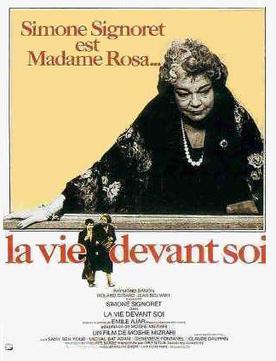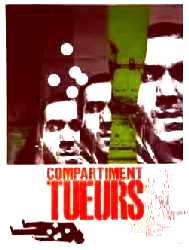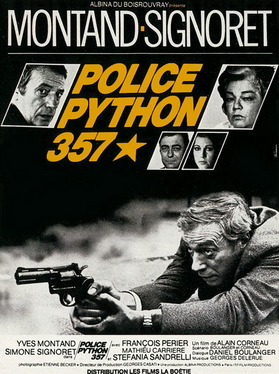
Chris Marker was a French writer, photographer, documentary film director, multimedia artist and film essayist. His best known films are La Jetée (1962), A Grin Without a Cat (1977) and Sans Soleil (1983). Marker is usually associated with the Left Bank subset of the French New Wave that occurred in the late 1950s and 1960s, and included such other filmmakers as Alain Resnais, Agnès Varda and Jacques Demy.

Georg Henri Anton "Joris" Ivens was a Dutch documentary filmmaker. Among the notable films he directed or co-directed are A Tale of the Wind, The Spanish Earth, Rain, ...A Valparaiso, Misère au Borinage (Borinage), 17th Parallel: Vietnam in War, The Seine Meets Paris, Far from Vietnam, Pour le Mistral and How Yukong Moved the Mountains.

Simone Signoret was a French actress. She received various accolades, including an Academy Award, three BAFTA Awards, a César Award, a Primetime Emmy Award, and the Cannes Film Festival Award for Best Actress, in addition to nominations for two Golden Globe Awards.

Ivo Livi, better known as Yves Montand, was an Italian-born French actor and singer. He is said to be one of France's greatest 20th-century artists.

Artur London was a Czechoslovak communist politician and co-defendant in the Slánský Trial in 1952. Though he was sentenced to life in prison, he was freed in 1955; he then settled in France with his wife Lise London. In 1968 he published his memoirs in L'Aveu, a book which resonated internationally, adapted by Costa-Gavras as the movie of the same name.

Serge Reggiani was an Italian-French actor and singer. He was born in Reggio Emilia, Italy, and moved to France with his parents at the age of eight.

Madame Rosa is a 1977 French drama film directed by Moshé Mizrahi, adapted from the 1975 novel The Life Before Us by Romain Gary. It stars Simone Signoret and Samy Ben-Youb, and tells the story of an elderly Jewish woman and former prostitute in Paris who cares for a number of children, including an adolescent Algerian boy. The film required a transformation in Signoret's appearance as Madame Rosa.

The Crucible is a 1957 French-language historical drama film directed by Raymond Rouleau with a screenplay adapted by Jean-Paul Sartre from the 1953 play The Crucible, by Arthur Miller.
Pierre Granier-Deferre was a French film director and screenwriter

Let's Make Love is a 1960 American musical comedy film made by 20th Century Fox in DeLuxe Color and CinemaScope. Directed by George Cukor and produced by Jerry Wald from a screenplay by Norman Krasna, Hal Kanter, and Arthur Miller, the film stars Marilyn Monroe, Yves Montand, and Tony Randall. It would be Monroe's last musical film performance.

The Confession is a 1970 French-Italian film directed by Costa-Gavras starring Yves Montand and Simone Signoret.

DOK Leipzig is a documentary film festival that takes place every October in Leipzig, Germany. It is an international film festival for documentary and animated film founded in 1955 under the name "1st All-German Leipzig Festival of Cultural and Documentary Films" and was the first independent film festival in East Germany. In 1995 a separate competition for animated films was added and in 2004 a film industry program, DOK Industry, was initiated to allow a networking and contact platform for industry professionals. Shortly after German reunification attendance figures dropped, with just 5,500 people coming in 1993; however, they quickly picked up and in 2008 the festival had more than 27,000 attendees. DOK Leipzig is part of the Doc Alliance – a creative partnership between 7 key European documentary film festivals.

The Sleeping Car Murders is a 1965 French mystery film directed by Costa-Gavras from the novel by Sébastien Japrisot. It stars Yves Montand, Simone Signoret, Michel Piccoli, Jean-Louis Trintignant, Catherine Allégret, Jacques Perrin, Charles Denner and Pascale Roberts. The film was the directorial debut of Costa-Gavras, to be followed later by other, more politically-oriented work.

Louis "Loulou" Gasté was a French composer of songs.
The Song of the Rivers is a 1954 documentary film production by the East Germany film studio DEFA. Dutch filmmaker Joris Ivens was the leading director. The sprawling film celebrates international workers movements along six major rivers: the Volga, Mississippi, Ganges, Nile, Amazon and the Yangtze. Shot in many countries by different film crews, and later edited by Ivens, Song of the Rivers begins with a lyrical montage of landscapes and laborers and proceeds to glorify labor and modern industrial machinery. The musical score is by Dmitri Shostakovich, with lyrics written by Bertolt Brecht, and songs performed by German communism's star Ernst Busch and famous American actor, singer and activist Paul Robeson who also narrates. Song of the Rivers is an ode to international solidarity.

De brug is a 1928 Dutch documentary silent short film directed by Joris Ivens. This silent film explores the then-newly constructed Koningshaven Bridge in Rotterdam, an elevator railway bridge. The film looks at its structure, mechanisms, complex actions, and the steam-powered trains and ships crossing it.
Fantômas is a 1946 French crime film directed by Jean Sacha and starring Marcel Herrand, Simone Signoret and Alexandre Rignault.

Police Python 357 is a 1976 French crime-thriller film written and directed by Alain Corneau. It is an adaptation of the storyline of Kenneth Fearing's 1946 novel, The Big Clock, though with obvious stylistic influences from earlier 70's police thrillers like Dirty Harry.

Marceline Loridan-Ivens was a French writer and film director. Her memoir But You Did Not Come Back details her time in Auschwitz-Birkenau. She was married to Joris Ivens.
![<i>Mutter Courage und ihre Kinder</i> (film) 1961 [[German Democratic Republic]] film](https://upload.wikimedia.org/wikipedia/commons/thumb/6/6b/Bundesarchiv_Bild_183-80357-0001%2C_Berlin%2C_Kino_%22OTL%22%2C_Nacht.jpg/320px-Bundesarchiv_Bild_183-80357-0001%2C_Berlin%2C_Kino_%22OTL%22%2C_Nacht.jpg)
Mutter Courage und ihre Kinder 1961 East German film produced by DEFA documenting the Berliner Ensemble staging of Bertolt Brecht's play of the same name. The play ran from 1959 to 1961, with Manfred Wekwerth and Peter Palitzsch directing, and stars Helene Weigel in the title role; it was modelled after the original 1949 production by Brecht and Erich Engel. The film received a prize at the Locarno Film Festival.

















![<i>Mutter Courage und ihre Kinder</i> (film) 1961 [[German Democratic Republic]] film](https://upload.wikimedia.org/wikipedia/commons/thumb/6/6b/Bundesarchiv_Bild_183-80357-0001%2C_Berlin%2C_Kino_%22OTL%22%2C_Nacht.jpg/320px-Bundesarchiv_Bild_183-80357-0001%2C_Berlin%2C_Kino_%22OTL%22%2C_Nacht.jpg)